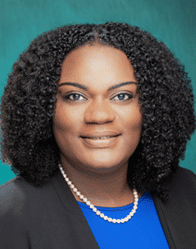Season 1 – Episode 25 – Title IX: Women in Athletics
The Education Amendments of 1972 banned sex discrimination in federally funded educational programs and introduced the landmark law known as Title IX. The landmark law, Title IX, paved the way for gender equity in higher education, notably increasing the participation of girls and women in athletics. As athletic programs are considered educational programs and activities, the penalty for non-compliance with Title IX is the loss of federal funding for an institution. While it has been 50 years since the introduction of Title IX and girls and women have made progress in equity, representation, and access to athletics, barriers continue to exist. CITI Program’s Title IX: 50 Years and Modern Challenges webinar is available to meet institutional needs.
Episode Transcript
Click to expand/collapse
Darren Gaddis: From CITI program, I’m Darren Gaddis, and this is On Campus. Today, what is Title IX and how it is important to women in sports, how campus communities support women in sports, what the impacts of Title IX are on athletics and ways campus communities can continue to support women in sports. I spoke with Tiffany Tucker, Deputy Director of Athletics at the University of North Carolina, Wilmington, where she serves as the Chief Operations Officer and is responsible for the department’s day to day operations. Tiffany is also one of Sports Illustrated 100 influential black women in sports. As a reminder, this podcast is for educational purposes only. It is not intended to provide legal advice or guidance. You should consult with your organization’s attorneys if you have questions or concerns about relevant laws and regulations discussed in this podcast. Additionally, the views expressed in this podcast are solely those of the presenter. Hi Tiffany. Thank you for joining me today.
Tiffany Tucker: Hey, Darren. Thanks for having me.
Darren Gaddis: Tiffany, to get us started today, what is Title IX and how is it important to women in sports?
Tiffany Tucker: It’s great that you asked. This is of course, it’s the 50th anniversary of Title IX, and it’s so important. I think from a media standpoint, everyone has been doing, whether it’s collaborations with different organizations and just amplifying the voice of women in sport this year because of the 50th anniversary. But the Title IX of the Education Amendments of 1972 pretty much states that no person in the United States on the base of sex should be excluded from participating in or denied the benefits of or discriminated against under any education program or activity that’s receiving federal financial assistance. This policy applies to schools and local and state educational agencies and other institutions that receive federal financial assistance from the institution. So how does it relate to sports? Because of course, in none of the legislation, athletics, sport, women, none of those words are found.
However, as athletic entities within the scope of institution, the university or high school that actually offers athletic programs, this is where athletics come into play, and this is how women in sport come into play. Because up until 1972, we didn’t have any legislation that pretty much mandated that women have a space, women or girls had a space in athletics. And then even if they were given a space, that there was no legislation tied to equitable accommodations, access, any level of fairness, equipment, facilities, locker rooms, and just honestly a health and safety precaution, just having a safe place to play. But it’s just so important to women in athletics as it’s grown over the last 50 years just with expansion, whether it’s into the professional realm or even from an international standpoint. But honestly, it just gives voice and gives a space to women who decide that I want to be an athlete. And what does that look like for a woman in the space of athletics to be able to participate and have an opportunity to participate in sport the same way their male counterparts are.
Darren Gaddis: You just spoke a lot about how Title IX supports women in sports, but beyond that, what other support structures exist for women in sports on their college campus?
Tiffany Tucker: Well, specifically on a college campus we, just to kind of back up just a little bit, we do have national structures that help support women. And I’ll just give you a few. Of course, the NCAA from a collegiate standpoint and the National Federation of State High School Associations. But one of the places that I love is led by a male ally, Dr. Richard Lapchick. He runs the Tucker Center for Research on Girl & Women in Sports. And this is for me, that level of accountability. He and his team do a fantastic job on an annual basis receiving the data. How many women are playing? What are they playing? Are they happy with the sports? Are they happy with the way the sport is moving? And also from a racial demographic as well. And just even outside of just athletes, even administrators and who’s working in the athletic spaces, but also the Women’s Sports Foundation is a great place.
And two others that I’m closely tied to, Women Leaders in College Sport who is led by Patti Phillips, located out in Kansas City, an awesome space for just support for women who participate in sport and also who work in sport in an administration realm such as myself. And then the second one is WeCOACH. And recently, just this past year, I joined the board of WeCOACH, and it’s an organization that fundamentally just hopes to educate and retain other women in sport, and it gives them the education that they need. It gives them levels of support, professional development. And Vanessa Fuchs has taken over the organization and it’s going in such a great direction. Our hope is that every conference at all levels become a part of WeCOACH so that coaches, women coaches in particular get the support they need.
But just to answer your question about on a campus, collaboration at the core is how honestly we run at UNCW. And I think about all of the institutions I’ve had an opportunity to serve. Here collaboration is key from our chancellor on down to our student athletes. Everybody is involved in the support process from the fun things that we do. We host theme game nights and we collaborate with the Office of Diversity, Equity, Inclusion, or even on executive levels where we have the chancellor and the chancellor’s cabinet talking about intentional strategies for gender equity among all of our students, not just our student athletes, but then also making sure that we have financial resources and educational opportunities for whether it’s our students, our student athletes, our staff, our faculty, and our administrators here on campus. So it’s not just siloed in athletics. In order for this thing to work, it has to be an institutional mission and movement.
Darren Gaddis: You just spoke a lot to the support structures on campus for women in sports, but what are some considerations for supporting women in sports beyond Title IX?
Tiffany Tucker: Well, first we have to understand that not all girls and women have had the same benefit from Title IX. And as a woman of color and understanding situations with people of color in the BIPOC community, and then also athletes who identify in the LGBTQIA plus community, those are areas where we still have to make incredible considerations for. And Title IX can play a real critical role in contributing to these more inclusive environments for girls and women, whether in high school or college, and understanding that the transformation for all of these things to come together.
Honestly, gender discrimination has to end from elementary school, to middle school, to high school to college in order for it all to work. Because even outside of the BIPOC community, outside of the LGBTQIA plus community in the Title IX grand scheme of things outside of athletics, we’re still talking about sexual assault and sexual violence and sexual misconduct, the Violence Against Women Act. So we still have all of these areas that are encompassed under Title IX even outside of athletics. And if we continue to educate at the granular level, we’ll continue to move the needle in the right direction.
Darren Gaddis: Tiffany, in your opinion, where do you think the campus community could improve at large in supporting women in athletics?
Tiffany Tucker: Well, I think about what we do here, and we do a really good job. We do a really good job of publicizing our women’s sports. Our students come out, our community comes out. And connecting with our community has been the biggest part because UNCW is larger than the walls of our institution. We like to say we go across college road into our community to bring everyone in and help them understand, we just don’t have men’s basketball, we just don’t have baseball or men’s soccer. We have these awesome, thriving, successful women’s sports. And honestly, at a even breaking it down just another level, we have these awesome just people who of course just happen to be super gifted in athletics. We have an ongoing relationship with one of the top attorneys in the country around Title IX, and he’s been monitoring our institution for probably about the last seven to 10 years.
And what I love about having someone who’s been able to see us grow from a place where we were able to create gender equity plans, we were able to put some implementation behind the goals that we needed to obtain, and then be able to bring them back and say, Hey, look at these things again and tell us how can we make them better. And they’ve been able to do Title IX reviews and just provide day to day guidance on Title IX compliance and new federal laws and how things are changing. The last thing, just saying, building collaborative working relationships with your Office of General Counsel, with your Title IX office, with your Office of Student Affairs, with the Office of Diversity, Equity, Inclusion. And then this one, just since I’ve been here the last four years, I’ve been able to build a really good relationship with our director of gender studies.
Darren Gaddis: What else should we know about Women in sports and Title IX?
Tiffany Tucker: I’ll leave you with these two things. One of the biggest myths about Title IX is that if women are treated equitably, that men will suffer, men’s sports will suffer, and that is absolutely false. Title IX is a place for equality, it’s a place for fairness, it’s a place for accountability for all people. I want to make sure I stress that. In a perfect world, we shouldn’t have to legislate ethics or morals, but we do. And then the second part, just with leaving a stat. Even though we talk about what can we do to be better, what can we do to amplify women? What can we do to make sure that women have a space in athletics, whether it’s high school, college, professional level, know that there is a bright side, that things are happening and women are participating, competing on college teams. And I want to say in 1972, there were 15% of women competing on a college level, and this past year, 44% are now competing. And if we continue to move this in the next two to three years, we could be at 50%.
Darren Gaddis: Tiffany, thank you for joining me today. It’s been a pleasure.
Tiffany Tucker: Darren, thank you so much. Thanks CITI. I’m super excited for the possibilities and what you all are doing to give space to Title IX. I’ve listened to a few other podcasts. This is awesome, and I thank you so much for what you’re doing.
Darren Gaddis: Tiffany, thank you for the kind words. I truly appreciate them. Be sure to follow, like and subscribe to On Campus with CITI Program to stay in the know. I also invite you to review our content offerings regularly as we are continually adding new courses and webinars that may be of interest to you. All of our content is available to you anytime through organizational and individual subscriptions. You may also be interested in CITI Program’s Title IX: 50 Years and Modern Challenges webinar. Please visit CITI Program’s website to learn more about all of our offerings.
How to Listen and Subscribe to the Podcast
You can find On Campus with CITI Program available from several of the most popular podcast services. Subscribe on your favorite platform to receive updates when episodes are newly released. You can also subscribe to this podcast, by pasting “https://feeds.buzzsprout.com/1896915.rss” into your your podcast apps.
Recent Episodes
- Season 1 – Episode 24: Universal Design: Campus Infrastructure
- Season 1 – Episode 23: Open Access: Federal Rule Change
- Season 1 – Episode 22: Clery Act Training
- Season 1 – Episode 21: Student Engagement: Colleges and Universities
Meet the Guest

Tiffany T. Tucker – University of North Carolina Wilmington
Tiffany D. Tucker is one of Sports illustrated’s 100 Influential Black Women in Sports. As the Deputy Director of Athletics at the University of North Carolina Wilmington, she serves as the chief operations officer and is responsible for the department’s day-to-day operations.
Meet the Host
Darren Gaddis, Host, On Campus Podcast – CITI Program
He is the host of the CITI Program’s higher education podcast. Mr. Gaddis received his BA from University of North Florida, MA from The George Washington University, and is currently a doctoral student at Florida State University.








